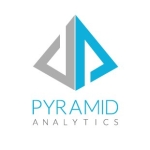We use this solution for financial planning and analysis. We definitely plan to expand our usage of this solution.
This solution brings our team together easily through its collaboration abilities.
The ability to collaborate and plan together is great. In fact, the collaboration capabilities across the board are very good. Also, integration-wise, it's very good.
I would like to know how Analytics Cloud plays with other products like SAP Data Warehouse Cloud and SAP HANA Cloud. SAP Data Warehouse Cloud is now integrated with SAP Analytics Cloud, but I would like to know how they strategically work together; what is the strategy? How do they work together and how is SAP planning to implement self-service? Currently, it's not very clear — particularly regarding Data Warehouse Cloud which is now part of SAP Analytics Cloud. It's quite difficult to navigate because SAP has many products.
Figuring out how to navigate all of the products around Data Warehouse Cloud and SAP Analytics Cloud and BW for HANA is quite difficult. The strategy of all the individual products and the roadmap itself, if you take it separately, it all looks good. There is a transformation navigator, but I don't think it's useful. It's not very easy to use; it's more technical than it is on the business side. In short, the roadmap and integration with other SAP Analytics products like Data Warehouse Cloud need to be improved. It's not clear and I can't find any information from SAP addressing the subject.
I have been using SAP Analytics Cloud for one year.
This solution is quite stable.
We don't require that much support; it's all in the cloud and it's been pretty good. It's well supported I would say.
We used Power BI and Tableau, but they both do not offer the native integration and business content that SAP provides. SAP provides a lot of business content and templates which is quite handy when it comes to complex projects.
The initial setup was very straightforward.
A team of consultants helped us with deployment — they were very helpful. As far as deployment is concerned, we followed an agile implementation model.
Deployment time varies depending on the project size and complexity. SAP has features like analytics, planning, predictive capabilities, simulation, and analytical application. All of these features are very good. They're all combined into one platform where everything can interact together.
Compute and storage features should be sold separately.
Typically, compute and storage is sold separately because there are a lot of use cases. A lot of people ask for it because other competitive products offer it. If they could provide that, it would be very helpful.
If you're interested in using this solution, you have to be aware of the frequent changes and product improvement that occurs. Every month there's a new update. You need to be aware of that but at the same time, don't get carried away with all the new features. Keep track of the roadmap and what new updates are coming. It won't cause any problems, but as it updates so often, it's good to keep track of what new features will be available and which features you should implement.
SAP Analytics can be used as an all-in-one source. It can bring everything together: BI, predictive, planning, simulation — it can combine all of this into a single user interface. Other products have also done this, but SAP has done it very nicely. It's quite good, it's quite stable — I like it.
Overall, on a scale from one to ten, I would give this solution a rating of eight. It combines all features into a single user interface, including planning, prediction, simulation, analytics application, and analytics or data dash boarding and reporting — I like it.


















